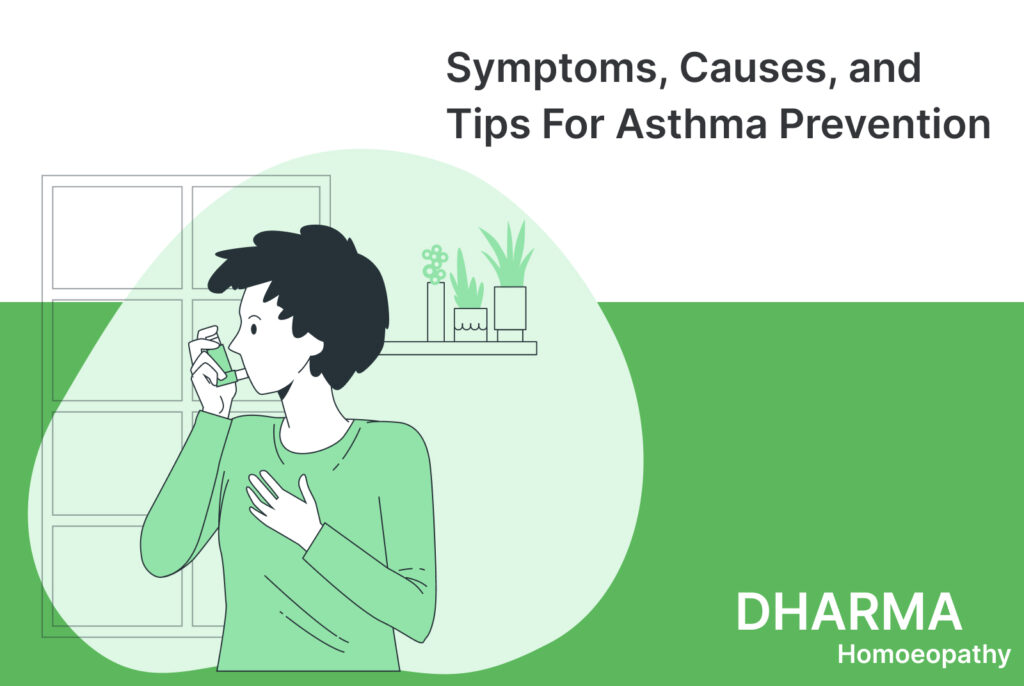Introduction
The progression in pollution and environmental changes gives rise to various diseases. Individuals of all ages are suffering from ailments that have posed a major impact on their health. Be it a heart disease, lung disease, kidney disease, or any kind. It has become a serious issue for medical science to bring the treatments that satisfy each requirement of the patients. Similarly, asthma has become a common health problem among individuals. It has become so serious that no permanent cures have been discovered to date. Only proper medications are used to suppress the symptoms and treat them. So, how to cure asthma?In this article, we will be covering every aspect of asthma and the proper medications to treat it. So, let’s begin with the article.
What is Asthma?
Asthma, also called bronchial asthma is an inflammatory lung disease. It’s a chronic disease which means it doesn’t vanish and needs proper medical treatment. It is a serious lung problem that has affected over 339 million people worldwide. Potentially, Asthma can become a life-threatening problem if not treated properly or not diagnosed in its early stages of appearance. To understand what asthma is, it’s required to understand what happens when a human breathes. Whenever an individual breathes, the surrounding air goes through the nose or mouth into the throat to the airways, and eventually into the lungs. There are a series of small air passages in the lungs that help deliver oxygen from the air to the bloodstream. This way a human being breathes and processes the functioning of the other organs.What is an Asthma attack?
Asthma is a progressive condition where if the symptoms grow, it’s known as an asthma attack. When an individual breathes normally, the muscles in the airways get relaxed, letting air pass easily. But during an asthma attack, these three things usually happen:- Bronchospasm: It happens when the muscles around the airways tighten. The tightened muscles make the airways narrow due to which the air can’t flow freely through the airways.
- Mucus Production: During the asthma attack, the body creates more mucus which clogs the airways.
- Inflammation: Swelling in the airways doesn’t let air flow in the lungs as the lining becomes thick.
Causes and Triggers of Asthma
Although asthma is quite common in children it didn’t appear until adulthood. Many health experts haven’t identified any specific cause for the asthma. However, it can be caused by various factors that are:- Genetics: If parents or grandparents have asthma, the offspring will be more likely to develop it.
- History of Viral Infections: Individuals having a history of severe viral infections in their childhood like Respiratory syncytial virus infection (RSV) are more prone to develop asthma in the future.
- Hygiene: When infants are not exposed to bacteria in the initial days after their birth, their immune system will not become strong enough to fight against asthma and other allergies or respiratory issues.
- Respiratory Infections: Viral infections include enhanced responsiveness of the respiratory tract and increased eosinophilic inflammation in the airways.
- Allergens: This includes small particles in the environment that can give rise to asthma.
- Exercise: Exercise can also trigger asthma in some people. An intense workout can cause shortness of breath.
- Environmental Irritants/Air Pollution: Certain things outside can cause asthma attacks including emissions, vehicle exhaust, and smoke.
- Certain medications and chemicals: Chemicals and strong smells trigger asthma attacks in some people.
- Pests: Cockroaches, Mice, or other pests can give rise to asthmatic situations.
- Tobacco Smoke: If someone smokes in the family or if the individual smokes, there are higher chances of developing asthma.
Types of Asthma
Asthma can be of various types depending upon its cause. A qualified practitioner will examine the patients and determine the type of asthma they have. However, the most common type is allergic asthma which contributes to a total of 60% of asthmatic patients in the world. The global asthma report highlights that about 35 million people suffer from asthma in India. While asthma can appear at any stage of life, pediatric asthma affects children while adult-onset asthma appears after 50 years of age. Some specific types of asthma are listed below:1. Allergic Asthma: This type of asthma is commonly triggered by allergens, including pet dander, and food. Dust, mold, and pollen. It is a seasonal allergy.
2. Non-allergic Asthma: Irritants in the air are the main cause of asthma. These irritants can be:
Burning wood
3. Occupational Asthma: It is triggered by irritants in the workplace environment like:
- Dyes
- Gases and fumes
- Rubber latex
- Animal proteins
- Dust
4. Exercise-induced bronchoconstriction (EIB)
Usually, individuals often suffer from asthma within a few minutes of extensive workouts. This condition is known as Exercise-induced bronchoconstriction where up to 90% of people with asthma also experience EIB.5. Cough Variant Asthma
CVA doesn’t cause classical asthma symptoms. Instead, it results in a persistent dry cough. If it’s not treated then it could lead to fully-grown asthma that will require immense treatment to cure.Asthma Diagnosis
Now after understanding asthma, and its types. Let’s understand how to diagnose it. During the birth of a child, no tests can identify whether your child has asthma or not. Qualified practitioners will use a wide range of criteria to find the disease as per the symptoms. Here are some steps that will help in the diagnosis of asthma:- Health history: Tell your physician about the family history linked with asthma. It will help them understand the pattern of its occurrence.
- Physical exam: The doctor will listen to the breathing with a stethoscope. They may also perform some skin tests in search for signs of allergy.
- Breathing tests: Pulmonary function tests measure the flow of air in the lungs. Spirometry is a device in which a patient blows into the device to measure the speed of the air.
Asthma Treatment
Medical science has multiple high-tech treatment options to treat asthma. To treat asthma, the National Asthma Education and Prevention Program classified the asthmatic conditions based on severity. It includes:- Intermittent: Most asthmatic patients fall into this category. It doesn’t interfere with the daily activities of the individuals. Usually, the symptoms are mild and occur in 2 days per week or even 2 nights per month.
- Mild persistent: The symptoms usually occur twice per week and up to 4 nights per month.
- Moderate persistent: The symptoms occur daily and usually 1 night per week.
- Severe persistent: These symptoms appear several times every day and they have an impact on daily life activities.
- Bronchodilators: These medicines relax the muscles of the airways to let the airways move air freely. This also lets mucus move out of the airways unclogging them. To treat mild asthma, Homeopathy is also favorable as it targets the root cause of any disease. Usually, this medicine is used for intermittent and chronic asthma problems.
- Anti-inflammatory medicines: To treat asthma, Homeopathy is the best medication to try. It reduces swelling and mucus production in the airways making it easy for air flow in the lungs.
- Biologic therapies for asthma: This therapy is used to treat severe asthma even when the symptoms stay longer.
How does Homeopathy cure asthma?
Patients often look for the best treatment options that aid in the complete treatment of asthma. Try homeopathy today, it is a system of medicine that supports the body’s internal healing with specialized remedies. It is crucial to treat asthma with correctly selected homeopathic medicines. However, it involves careful study of the disease pattern and its classification to prescribe the right remedy. The reason for choosing the right homeopathic medicine for asthma is its composition. It’s made from natural substances like plants and animals and is highly diluted which makes it suitable to choose even with other medications. The best thing about homeopathy is it gets along with other medications very well without causing any side effects on the body. It targets the root cause of the disease and treats it on a deeper level from the origin rather than suppressing its symptoms in all prospects to diminish the tendency of reoccurrence. Thus an individual can rely on homeopathic treatment for healthy breathing and lifestyle.When to see a doctor?
It is not possible to eliminate asthma as there is no cure for it. However, there are homeopathic remedies that can decrease the symptoms. So, the question is when to see the doctor. There are two scenarios that you can choose which one you fall. If you haven’t received any asthma treatment but you are experiencing asthmatic symptoms then without wasting time, you should consult a doctor as soon as possible. If you have already received the asthma treatment, you must see the doctor at least once a year. Get in touch with your doctor immediately if you are feeling:- Weak
- Having wheeze or cough for a long
- Can’t perform daily activities
Conclusion
Treatment of asthma takes time. However, there are several medications which can be chosen to treat asthma. One should always look for homeopathic treatment for asthma if someone wants long-term treatment without any side effects. Homeopathy aids in treating the root cause rather than just suppressing the symptoms. Asthma is a long-term disease that has no permanent cure in medical science to date. So, to minimize asthma in individuals, it is crucial to educate them about the triggers, and precautionary measures that may help to avoid asthma attacks in the future. Long-term treatment is available to control asthma and to treat inflammation of the airways.FAQs
Major symptoms noticed by a person suffering from asthma include coughing, chest tightness or pain, Wheezing during sleep, and waking at night due to asthmatic problems.
The best thing one can do is to reduce the number of triggers in the home by keeping the house clean and dust-free. Keep windows closed and stay inside if the air quality is not good.
Asthma is a chronic health issue that is controllable. Unfortunately, even today there is no cure for asthma to vanish it completely. For that, asthma symptoms can be triggered. Several medications can minimize the symptoms but can never eliminate them.













